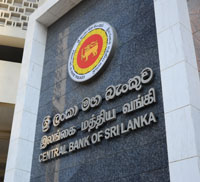In the best interest of the nation, the Central Bank will be taking all to strictly monitor and ensure compliance with all regulations on foreign exchange transactions, including repatriation requirements of export proceeds, conversions, and mandatory sales to the monetary authority.
Any instances of non-compliance will be dealt with stern action within the provisions of all applicable laws.
The Central Bank has strengthened its capacity in relation to monitoring of foreign exchange transactions through the implementation of the Export Proceeds Monitoring System (EPMS) and the International Transactions Reporting System (ITRS), which is a comprehensive monitoring system of cross-border transactions and domestic foreign currency transactions.
These systems facilitate regular monitoring of foreign exchange inflows and outflows. Further, assistance from independent professional bodies, including audit firms, is also being sought for the timely identification of any malpractices.
Hence, Licensed Banks and the trading community are urged to comply with the existing regulations and complement the efforts of the Government and the CB to provide much-needed assistance to all stakeholders of the economy under these extremely challenging circumstances.
The export trading community is urged to continue to repatriate all export proceeds within the stipulated timeframe and surrender the residual earnings in accordance with the regulations.
The banking community is requested to ensure strict adherence to all regulations in relation to foreign exchange transactions.
The Government and the Central Bank are relentlessly pursuing efforts to secure bridging finance to reduce and alleviate economic stresses in the near term.
A notable progress has been made in the ongoing negotiations for an economic adjustment programme with the International Monetary Fund.
The debt restructuring process is also underway, capably assisted with the Legal and Financial Advisers. The Government and the CBSL remain committed to implementing much needed reforms to overcome long-standing structural issues in the economy
To ensure adequate foreign exchange liquidity in the banking system, the CB had to impose surrender requirements on export earnings.
Further, measures were taken by the Government and the CB to discourage foreign exchange outflows, such as imposing restrictions on certain imports and payment terms and introducing margin requirements, while encouraging foreign inflows through the banking system, rather than those being channelled through the grey market.
The success of these regulatory measures and the ability to achieve the intended outcomes depend on the support and cooperation from the trading community and the banking system.
However, it has been brought to the notice of the CBSL that certain market players are not being fully compliant with these regulations.
Such practice, if continued, would deprive the people of the support expected from the Government in difficult times, while undermining the moral obligation of ‘equal burden sharing’ that is expected of all stakeholders under difficult and extraordinary circumstances.
Against this backdrop, and. The Central Bank reiterated that overcoming current economic woes and distresses requires substantial and concerted efforts from all stakeholders of the economy.
Foul play on the part of any group of stakeholders would inevitably result in the worsening of the crisis, thereby having widespread detrimental effects.
It is the duty of everybody to act conscientiously and responsibly, and extend their unhindered support during this hour of need, for the nation to recover rapidly and emerge stronger from this crisis, the Central Bank emphasised.
